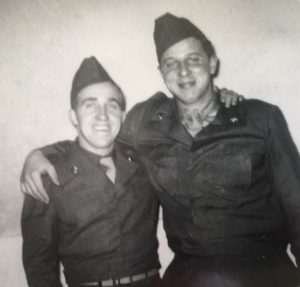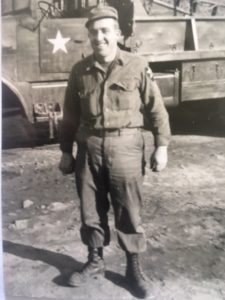

Norbert Carter was 20 years old and married for a couple years when he was drafted in 1951 into the Army. He entered service in 1952.

“I never got to go to high school,” said Carter. “I was put on the farm to help my uncle because he couldn’t get a hired man during the war.”
Carter was one of 7 boys in the family; four of his siblings were also in the service. “My dad was in World War I; my oldest brother was in the Navy during Pearl Harbor. Two of my brothers were in Germany, two of us were in Korea and my youngest son was in Desert Storm.”
Carter went to Fort Indiantown Gap, Pennsylvania for basic training. That was followed by a stint in Washington and later he spent 17 days on a ship to Japan.
“We spent one night in Japan, got back on the boat and I spent the next 15 months and 22 days in Korea,” Carter said.
Immediately stationed on the front line, Carter recalls his orders.
“We were on night patrol and walked up to one area and were handed a steel vest and they said ‘put it on — this is the area where you need it’ and we walked some more and pretty soon we were up on Old Baldy,” he said referencing the site of five engagements during a 10-month span of the Korean War.
“For 32 days I helped build bridges while we were under fire,” Carter said. “There were some Army tanks on a couple mountains up there and we had to get them back for service work.
“The biggest bridge we had was 280-feet long and it was all steel treadway. We couldn’t work during the day because the enemy could see us and every day for the first five days the bridge was knocked out by artillery, so each day we had to tear it out and start over.”
Carter was discharged in 1953 as a staff sergeant Section B in the Second Division Combat Engineers. Carter is well-known in the local military circle; he is chairman of the Veterans of Foreign Wars in West Bend and has been commander for 18.5 years.
Carter has been active for 60 years in the local VFW post honor guard and military squad.









